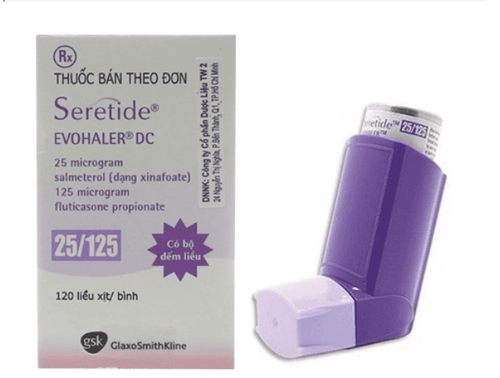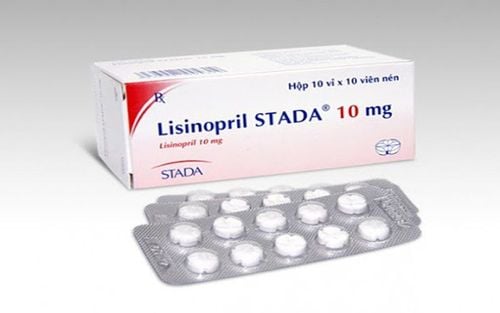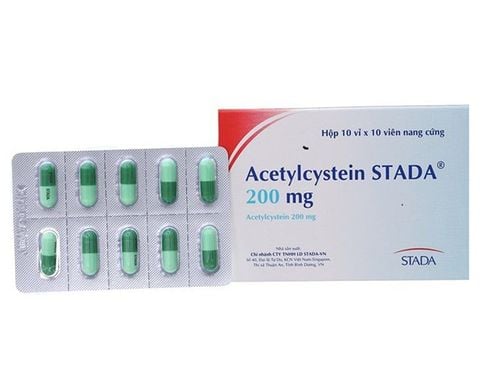This is an automatically translated article.
The article was professionally consulted by Dr. Nguyen Van Dinh - Head of Respiratory - Asthma - Allergy - Clinical Immunology Unit, Vinmec Times City International General Hospital.While asthma is one of the most common chronic diseases, cardiovascular disease is the leading cause of death worldwide. Therefore, understanding the relationship between the two diseases has great significance in the care and treatment of patients with asthma and cardiovascular disease.
1. General risk factors
Air pollution from tobacco smoke and nitrogen dioxide (NO2) has been shown not only to increase the risk of cardiovascular disease but also to adversely affect asthma.
Fine particulate matter : Epidemiological data recorded worldwide have shown that the frequency of cardiac death and stroke is proportional to the length of time patients are exposed to concentrations of pollutants, which especially the small particles present in the air. Tobacco smoke: Cigarette smoke contains more than 4000 chemicals that can be harmful to the body. The impact of smoking doubles the risk of cardiovascular disease. In addition, people with asthma who smoke regularly also make asthma worse. Secondhand smoke causes the body to have an inflammatory response to bronchitis (which is associated with neutrophils) and the congestion is more difficult to recover from. Nitrogen dioxide: The risk of both asthma and heart disease is increased by the pollutant nitrogen dioxide (NO2). Exposure to NO2 increases the risk of heart disease, especially for people with existing asthma. The respiratory capacity in asthmatic patients is very vulnerable to high exposure to nitrogen dioxide, but this does not affect the breathing function of normal healthy people.
2. What is the relationship between asthma and heart disease?

According to doctors, if asthmatics do not smoke, there is a 33% risk of cardiovascular disease. This also means that for people with asthma who smoke, this risk will be much higher.
Research by the American Heart Association shows that the risk of cardiovascular events in patients with persistent asthma is 60% higher than in the general population. Other medical data also show that 37% of asthmatics have hypertension, which often occurs during a severe acute asthma attack. Asthma increases the risk of coronary heart disease by 1.4 times, stroke by 1.2 times, and the risk of heart failure by 2.1 times.
2.1. General Mechanism The cause of this fact is that both heart disease and asthma are inflammatory diseases. In patients with persistent asthma, C-reactive protein (CRP) and fibrinogen were significantly increased, suggesting a link between inflammation in asthmatic patients and cardiovascular disease. In addition, abnormal cytokines that increase during an asthma attack also increase the risk of cardiovascular disease. In addition to high blood pressure, during an asthma attack, the patient's pulse is also rapid due to sympathetic hyperactivity, signs of hypoxia, or metabolic acidosis due to lactic acid.
2.2. Effects of Medications Asthma Drugs on Cardiovascular Disease Some medications used to treat asthma have the potential to cause cardiovascular disease to progress in a negative direction. For example:
Oral corticosteroids: May increase the risk of heart disease 2.5 times, the higher the dose of systemic corticosteroids, the greater the risk. Beta-agonists: This bronchodilator has been reported to increase heart rate, lower blood potassium. High doses of beta-agonists can lead to myocardial ischemia, heart failure, arrhythmias, and sudden death. Theophylline: Although effective in treating asthma, this drug is also rarely used because of the risk of cardiovascular events in high doses, contraindicated for people with tachycardia or coronary heart disease. Cardiovascular Medicines for Asthma Some beta-blockers, particularly nonselective beta-blockers, commonly used in the treatment of cardiovascular disease can predispose asthmatic patients to acute asthma attacks if used inappropriately. . In rarer cases, other heart medications such as aspirin have the potential to trigger asthma in some patients, and ACE inhibitors have the potential to cause a cough or bronchospasm.

3. Diagnosing patients with asthma and cardiovascular disease
To diagnose whether an asthmatic patient has cardiovascular disease or not, it is necessary to note some of the following characteristics:
Symptoms of cough, shortness of breath, chest tightness and wheezing are manifestations of asthma. Meanwhile, chest pain (not heaviness) can be caused by ischemic heart disease or other thoracic-related conditions. Asthma patients have a cough for a variety of reasons, but if it's a chronic cough, it's not because of the medications that are commonly used in heart patients. Shortness of breath and wheezing can also be symptoms of heart failure. If the patient has more than one symptom of asthma, a bronchodilator and corticosteroid treatment can be tried first. In contrast, patients with only a few isolated symptoms and ineffective asthma treatment should pay attention to cardiovascular disease. Asthma has no definitive cure, but patients can safely use inhaled corticosteroids and montelukast for good control of symptoms. Patients with asthma and heart disease should adjust their lifestyle to avoid the harmful factors for the heart such as smoking, obesity, sedentary. In addition, regular exercise and regular physical examination are things that asthmatics need to keep in mind.
Please dial HOTLINE for more information or register for an appointment HERE. Download MyVinmec app to make appointments faster and to manage your bookings easily.













